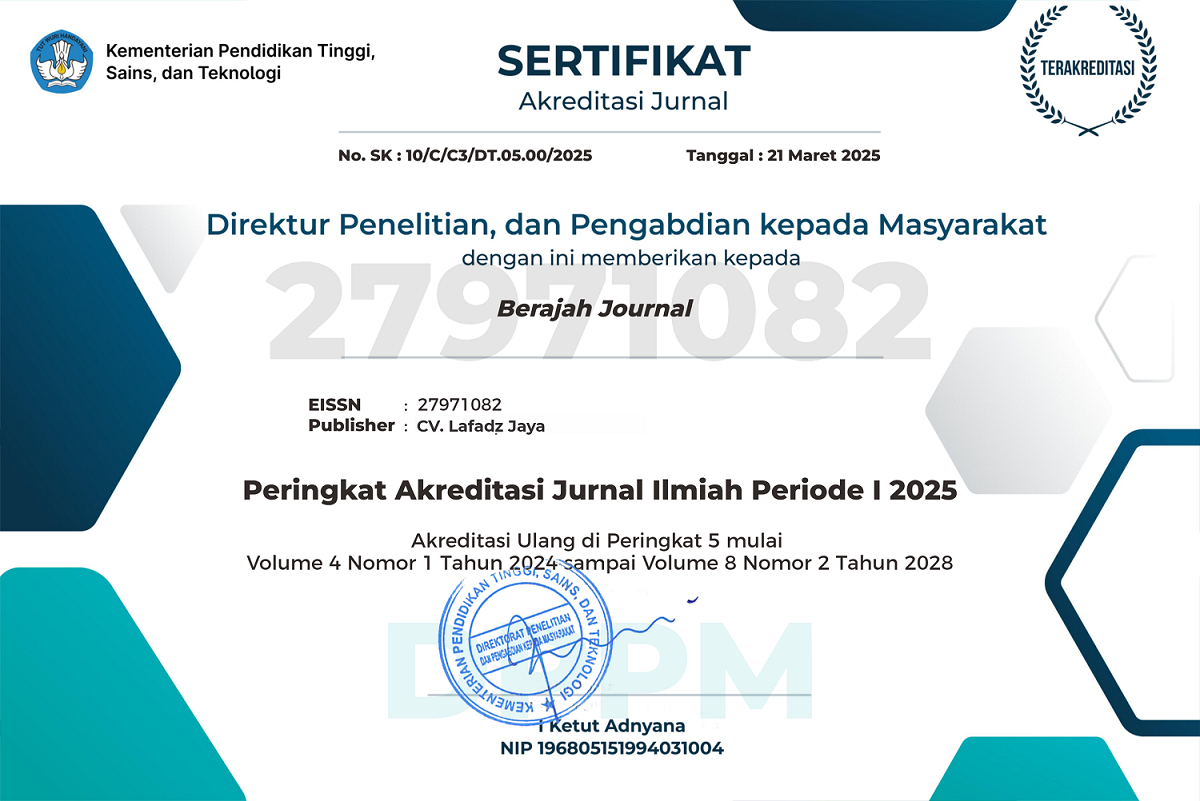MARKETING STRATEGIES IN SHARIA TOURISM: EXPLORING CONSUMER BEHAVIOR AND DIGITAL BRANDING FOR SUSTAINABLE GROWTH
DOI:
https://doi.org/10.47353/bj.v4i6.428Keywords:
Sharia Tourism, Marketing Strategies, Digital Branding, Muslim Traveler Behavior, Halal TourismAbstract
Sharia tourism, or Islamic-friendly tourism, has emerged as a growing sector in the global tourism industry, driven by the increasing demand for travel experiences that adhere to Islamic principles. As Muslim travelers seek destinations and services that align with their religious beliefs, the need for effective marketing strategies in this sector has become crucial. This paper explores key marketing strategies employed in Sharia tourism, focusing on the role of digital marketing, branding, and consumer behavior in shaping the growth of this niche market. Through case studies and analysis of successful Sharia-compliant tourism destinations, the research highlights how destinations are leveraging social media, influencer marketing, and content-driven campaigns to attract Muslim travelers. Moreover, this paper discusses the unique challenges faced by marketers in positioning Sharia tourism products while maintaining cultural sensitivity and religious compliance. The research also examines consumer preferences, exploring how elements such as halal food, gender-segregated facilities, and religious accommodations influence the decision-making process of Muslim tourists. The findings suggest that with proper marketing, Sharia tourism can significantly contribute to the growth of the global tourism sector, offering both economic benefits and opportunities for cultural exchange. Lastly, recommendations are provided for tourism marketers to enhance their branding efforts and ensure that their messaging aligns with the values and needs of Muslim travelers.
Downloads
References
Battour, M., & Ismail, M. N. (2016). Halal tourism: Concepts, practices, challenges, and future. Tourism Management Perspectives, 19, 150-154.
Crescentrating. (2019). Top halal-friendly destinations for Muslim travelers. Global Muslim Travel Index Report.
Eid, R., & El-Gohary, H. (2015). The role of Islamic religiosity on the relationship between perceived value and tourist satisfaction. Tourism Management, 46, 477-488.
El-Gohary, H. (2016). Halal tourism, is it really Halal?. Tourism Management Perspectives, 19, 124-130.
Global Muslim Travel Index (GMTI). (2019). Muslim travel market growth: Opportunities and trends. CrescentRating.
Henderson, J. C. (2016). Halal food, certification and halal tourism: Insights from Malaysia and Singapore. Tourism Management Perspectives, 19, 160-164.
Jaelani, A. (2017). Halal tourism industry in Indonesia: Potential and prospects. International Review of Management and Marketing, 7(3), 25-34.
Jafari, J., & Scott, N. (2014). Muslim world and its tourisms. Annals of Tourism Research, 44, 1-19.
Khan, F. (2016). Digital marketing strategies in Halal tourism: Influencing factors and consumer behavior. Journal of Islamic Marketing, 7(4), 421-432.
Kessler, K. (2015). Halal food tourism in South East Asia: Challenges and opportunities. Asia Pacific Journal of Tourism Research, 20(4), 457-474.
Kirillova, K., Lehto, X., & Cai, L. (2017). Existential authenticity and anxiety as outcomes: The tourist in the experience economy. International Journal of Tourism Research, 19(1), 13-26.
Mansour, M. (2017). The role of digital marketing in promoting Sharia-compliant tourism. Journal of Islamic Tourism, 4(1), 22-34.
Mohsin, A., Ramli, N., & Alkhulayfi, B. A. (2016). Halal tourism: Emerging opportunities. Tourism Management Perspectives, 19, 137-143.
Razalli, M. R., Abdullah, S., & Hassan, M. G. (2012). Developing a model for Islamic hotels: Evaluating opportunities and challenges. Journal of Global Business and Economics, 5(1), 73-82.
Samori, Z., Salleh, N. Z. M., & Khalid, M. M. (2016). Current trends on Halal tourism: Cases on selected Asian countries. Tourism Management Perspectives, 19, 131-136.
Stephenson, M. L. (2014). Deciphering ‘Islamic hospitality’: Developments, challenges and opportunities. Tourism Management, 40, 155-164.
Sukiman, M. F., Omar, H., & Roslan, A. (2015). Halal tourism and Islamic tourism: The contributions of non-Muslim countries to the growth of this industry. Journal of Islamic Marketing, 6(2), 155-168.
Tourism Malaysia. (2020). Malaysia’s role in the development of Sharia-compliant tourism. Malaysia Tourism Report, 12(1), 89-102.
Yusof, A., & Shutto, N. (2014). Exploring the halal tourism and Islamic hospitality industry in Malaysia. Procedia - Social and Behavioral Sciences, 121, 119-126.
Zulkifli, A., & Rahman, A. (2018). Consumer preferences in halal tourism: A case study in Indonesia. Journal of Tourism and Hospitality, 9(2), 45-60.
Downloads
Published
How to Cite
Issue
Section
License
Copyright (c) 2024 Siti Sunaidah

This work is licensed under a Creative Commons Attribution 4.0 International License.






















